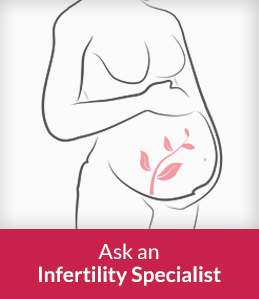
Mrs A…Ohh Dear…My periods are irregular,I have hot flushes and night sweat and sometimes have sleep difficulties. I feel tired, weak or even exhausted , sometimes I feel sad, moody or overwhelmed…….How do I get rid of these symptoms??
Friend B: Is it so? Why don’t you consult a gynaecologist?/
Mrs A: well I did !! my Doctor did some examinations and tests and says I may be going through Premature Menopause…ridiculous..menopause at 36 years of age!! I did not visit her again.
Friend B: oh is it so..then let me tell u somethings….
Menopause is stoppage of menstruation as a result of stoppage of ovarian activity and marks the end of reproductive period of a woman’s life.
Menopause that happens before age 40 is called premature menopause.
Menopause that happens between 40 and 45 is called early menopause.
About 5% of women naturally go through early menopause. Early or premature menopause happens when ovaries stop making hormones and periods stop at a younger age than usual .This can happen naturally or due to any medical reason, such as when both ovaries are removed during a hysterectomy.
Smoking and certain medicines or treatments can cause menopause to come earlier than usual.
Primary ovarian insufficiency (POI) is a term that is often used to mean the same thing as premature menopause, but it is different. POI happens when your ovaries stop working before age 40 and sometimes as early as in your teens.
Early and premature menopause can have the same causes. The only difference is the age at which it happens. Menopause that happens before age 45 is called early menopause. Menopause that happens before age 40 is called premature menopause.
Early or premature menopause can happen on its own for no clear reason, or it can happen because of certain surgeries, medicines, or health conditions.
Fuller Albright et al. in 1942 first reported a syndrome in young women characterized by menopausal levels of follicle stimulating hormone (FSH), low estrogen levels amenorrhea. They named the condition “primary ovarian insufficiency” to distinguish the condition from secondary ovarian insufficiency, which is the failure of the pituitary to secrete FSH
Reasons for early or premature menopause can include:
- Family history. Women with a family history of early or premature menopause are more likely to have early or premature menopause.
- Smoking. Women who smoke may reach menopause as much as two years before nonsmokers. They may also get more severe menopause symptoms. Research suggests that women who have early or premature menopause and smoke die about two years earlier than nonsmoking women.
- Chemotherapy or pelvic radiation treatments for cancer. These treatments can damage your ovaries and cause your periods to stop forever or just for a while. You also may have trouble getting pregnant or not be able to get pregnant again. Not all women who have chemotherapy or radiation will go through menopause. The younger a woman is at the time of chemotherapy or radiation, the less likely she is to go through menopause.
- Surgery to remove the ovaries. Surgical removal of both ovaries, called a bilateral oophorectomy, may cause menopausal symptoms right away. Your periods will stop after this surgery, and your hormone levels will drop quickly. You may have strong menopausal symptoms, like hot flashes and less sexual desire.
- Surgery to remove the uterus. Some women who have a hysterectomy, which removes the uterus, can keep their ovaries. If this happens, you will no longer have periods, and you cannot get pregnant. But you will probably not go through menopause right away because your ovaries will continue to make hormones. Later on, you might have natural menopause a year or two earlier than expected.
- Certain health conditions:
- Autoimmune diseases, such as thyroid disease and rheumatoid arthritis. Although rare, the body’s immune system, which normally fights off diseases, may mistakenly attack the ovaries and keep them from making hormones.
- HIV and AIDS. Women with HIV whose infection is not well controlled with medicine may experience early menopause. Women with HIV may also have more severe hot flashes than women without HIV.
- Missing chromosomes. Women born with missing chromosomes or problems with chromosomes can go through menopause early. For example, women with the condition called Turner’s syndrome are born without all or part of one X chromosome, so their ovaries do not form normally at birth and their menstrual cycles, including the time around menopause, may not be normal.
- Chronic fatigue syndrome. Women with myalgic encephalomyelitis/chronic fatigue syndrome (ME/CFS) have extreme tiredness, weakness, muscle and joint pain, memory loss, headache, unrefreshing sleep, and other symptoms. Research has found that women with ME/CFS are more likely to have early or premature menopause.
How do I know if I am going through early or premature menopause?
…..you have not had your period for 12 months in a row.
What are the effects of early or premature menopause?
Women who go through menopause early may have symptoms or health problems similar to those of regular menopause.
But some women with early or premature menopause may also have:
- Higher risk of health issues problems, such as heart disease and osteoporosis.
- More severe menopause symptoms.
- Sadness or depression over the early loss of fertility or the change in their bodies.
- symptoms of depression, including less energy or a lack of interest in things you once enjoyed.
How do we diagnose??
Serum follicle-stimulating hormone (FSH) measurement alone can be used to diagnose the disease. Two FSH measurements with one-month interval have been a common practice. The anterior pituitary secretes FSH and LH at high levels due to the dysfunction of the ovaries and consequent low estrogen levels. Typical FSH in POF patients is over 40 mlU/ml (postmenopausal range)
Treatment
- Fertility
Between 5 and 10 percent of women with this may become pregnant. Currently no fertility treatment has officially been found to effectively increase fertility in these women, and the use of donor eggs with in-vitro fertilization (IVF) and adoption are popular as a means of achieving parenthood for women with Premature Menopause
Currently New York fertility researchers are investigating the use of a mild hormone called dehydroepiandrosterone (DHEA) in women with POF to increase spontaneous pregnancy rates.
Many studies conducted on DHEA have indicated that it increases spontaneously conceived pregnancies, decrease spontaneous miscarriage rates and improve IVF success rates in women with premature Menopause. after a few months of DHEA administration, some succeeded in getting pregnant through IVF, IUI, IUTPI or natural conception.
Ovarian tissue cryopreservation can be performed on prepubertal girls at risk for premature ovarian failure, and this procedure is as feasible and safe as comparable operative procedures in children.
- Hormonal replacement
Most people develop symptoms including flushes and vaginal dryness, due to Oestrogen deficiency both of which respond to hormone replacement therapy.
Contraindications to estrogen supplements, include smokers >35 years age, uncontrolled hypertension, uncontrolled diabetes mellitus, or history of thromboemboli events.
Women younger than 40 years with primary ovarian insufficiency benefit from physiologic replacement of hormones.
Hormone replacement should continue until age 50 years, the normal age of menopause.
The Hormone replacement regimen recommended involves the administration of estradiol daily by either skin patch or vaginal ring. This approach reduces the risk of pulmonary embolism and deep venous thrombosis by avoiding the first pass effect on the liver that is induced by oral estrogen therapy.
To avoid the development of endometrial cancer young women taking estradiol replacement need also to take a progestin in a regular cyclic fashion, medroxyprogesterone acetate per day from days 1 to 12 of each calendar month.
The transdermal estradiol patch is commonly recommended due to several advantages. It provides the replacement by steady infusion rather than by bolus when taking daily pills. It also avoids the first-pass effect in the liver.
A doctor shall always help you, Consult A Doctor for Medical Advice.






,